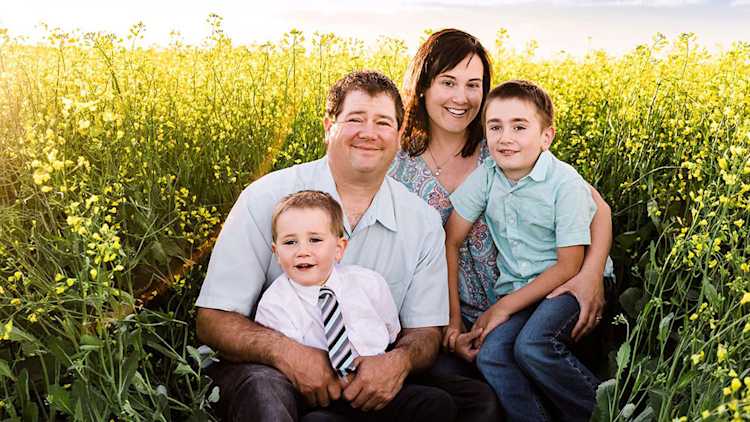Taking on too much? How prioritizing your time helps ease the burden

Prioritizing what you have time for and letting somebody else do the rest can go a long way to improving your business and personal life.
“You don’t need to be everything, and you don’t need to do everything,” Aimée Ferré Stang says in a recent FCC podcast. “There are only 24 hours in a day. What can you do in that 24 hours that’s going to be enough and that’s going to have a contribution to the farm?”
Living on a Saskatchewan farm near the Alberta border with her husband and kids, Ferré Stang also works at FCC as a social media consultant.
She learned to find the right mix of what makes sense for not only her family, but also her personal growth and objectives as well.
For example, while women often make meals for crews during busy times on the farm, Ferré Stang points out there’s nothing wrong with hiring someone to help ease the workload. Just as an accountant may be brought in to advise on farm finances, someone to help with food preparation and nutrition is just as important.
Ferré Stang says young farm families like hers typically continue to take on too much, as is the nature of many entrepreneurs. But learning to delegate to experts is an important skill, to help ease stress at home and with the farm operation. That’s especially true when a partner chooses to work off the farm, not for the income, but for the outlet it provides.
The more we can focus on our strengths, the stronger we’ll be in our business.
Ferré Stang believes conversations about priorities are becoming more common among farmers.
“I think that’s a positive thing because the more we can focus on our strengths, the stronger we’re going to be in our business and as an industry.”
While she doesn’t know how to drive a tractor, Ferré Stang is instead focused on the human resources side of the farm operation. Yet, she acknowledges she still finds herself trying to take on too much and continues to learn she can’t be everything to everyone.
“It doesn’t matter what kind of industry you’re in, I think letting go is probably the hardest thing,” she says.
Nevertheless, she believes the trend among farm families is changing.
“I feel like we’re shifting towards, ‘OK, let’s specialize in what we are good at and what we’re interested in, and we’re going to be more efficient that way.’”
Ferré Stang offers several ideas for thriving as a farm family.
Have a support network
Gather with peers — other women involved in agriculture — to create an outlet. Conversations don’t always have to be about agriculture but might be closely related, such as the challenges of healthy meals or seasonal solo parenting.
Banish the guilt-trips
Stop listening to self-doubt. If the kids have later bedtimes or aren’t eating as well as they perhaps should at busy times like seeding or harvest, it’s OK as long as preferred routines and meals fall back into place after the busy times have passed.
You can’t do it all
You don’t need to be everything and you don’t need to do everything. Focus and specialize on what you’re good at and what you’re interested in. Consider outsourcing the rest.
You can still reach your dreams from the farm
There’s nothing wrong with following your spouse to their career goals back on the farm. You can still live your dreams and find your higher purpose from the farm.
You are important
If you catch yourself doubting the importance of folding laundry, changing diapers and running meals to the field, ignore it. The work you’re doing is an important contribution to society.
To hear more from Aimée and Marty, and for more real talk and about farm life and the business of agriculture, listen and subscribe to the FCC Knowledge: Talking Farm and Food podcast.
Article by: Richard Kamchen

Ahmed Atteya and Suzanne VanderMeulen focus on goal planning, patience and making meaningful connections to achieve their dreams of working in a vibrant agricultural industry.
